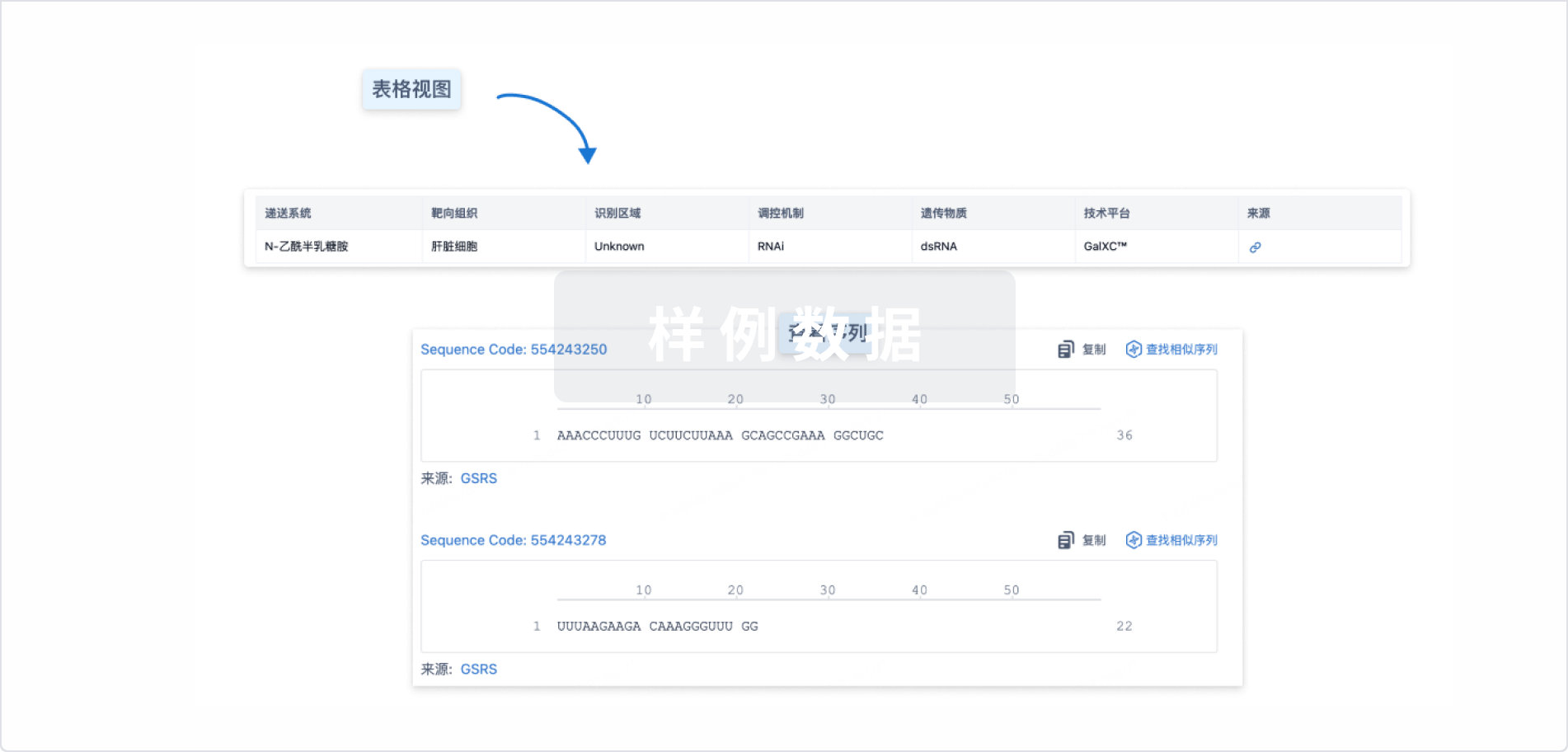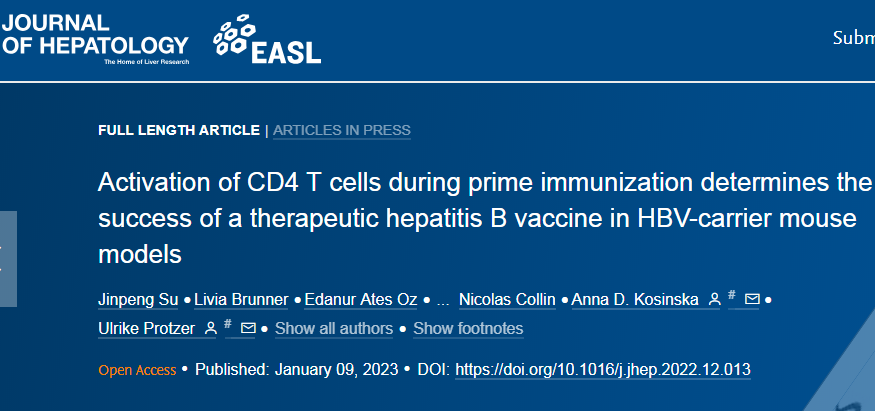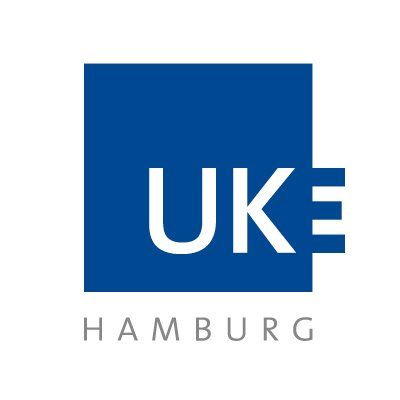预约演示
更新于:2025-10-14
TherVacB
更新于:2025-10-14
概要
基本信息
非在研机构- |
权益机构- |
最高研发阶段临床1/2期 |
首次获批日期- |
最高研发阶段(中国)- |
特殊审评- |
登录后查看时间轴
结构/序列
使用我们的RNA技术数据为新药研发加速。
登录
或

关联
2
项与 TherVacB 相关的临床试验NCT06513286
TherVacB - A Multi-center Phase 1b/2a Trial to Assess Safety, Tolerability and Immunogenicity of a Heterologous Protein Prime/MVA Boost Therapeutic Hepatitis B Vaccine Candidate
This study is an open-label, ascending dose phase 1b/2a trial to assess the safety and immunogenicity of a heterologous protein prime/MVA boost therapeutic hepatitis B vaccine in patients with chronic HBV who are virally suppressed with oral anti-viral therapies.
开始日期2025-06-12 |
申办/合作机构 |
NCT05727267
TherVacB_Phase1a: Open Phase 1a Trial to Assess the Safety and Immunogenicity of a Heterologous Protein Prime/MVA Boost Therapeutic Hepatitis B Vaccine Candidate in Healthy Volunteers
This study is an open-label, ascending dose phase 1a trial to assess the safety and immunogenicity of a heterologous protein prime/MVA boost therapeutic hepatitis B vaccine
开始日期2024-01-23 |
申办/合作机构 |
100 项与 TherVacB 相关的临床结果
登录后查看更多信息
100 项与 TherVacB 相关的转化医学
登录后查看更多信息
100 项与 TherVacB 相关的专利(医药)
登录后查看更多信息
7
项与 TherVacB 相关的文献(医药)2025-09-01·Molecular Therapy-Nucleic Acids
MVA-HBVac—A novel vaccine vector that allows pan-genotypic targeting of hepatitis B virus by therapeutic vaccination
Article
作者: Steiger, Katja ; Hansen-Palmus, Lea ; Kerth, Helene A ; Protzer, Ulrike ; Mogler, Carolin ; Ko, Chunkyu ; Sacherl, Julia ; Bauer, Tanja ; Ates Öz, Edanur ; Knolle, Percy A ; Festag, Julia ; Mück-Häusl, Martin ; Lehmann, Michael H ; Kosinska, Anna D ; Gültan, Merve ; Volz, Asisa K ; Kächele, Martin
Therapeutic vaccination holds the promise to cure chronic hepatitis B virus (HBV) infection. We hypothesize that B cell, CD4, and CD8 T cell responses are necessary to overcome HBV-specific immune tolerance in chronic infection because they accompany the rare, spontaneous resolution of chronic HBV infection. Therefore, we designed the heterologous prime-boost vaccine TherVacB in which virus-like particle vaccination stimulates B and helper CD4 T cells and primes cytotoxic effector CD8 T cells and a vector boost expands the T cell response. Here, we report the generation and characterization of a novel modified vaccinia virus Ankara (MVA)-based vector, MVA-HBVac, capable of inducing strong and multi-specific T cell responses against the immunodominant epitopes of four different viral proteins covering >95% of HBV strains circulating worldwide. When MVA-HBVac was administered after a prime with adjuvanted hepatitis B S- and core-antigens forming virus-like particles, it activated strong HBV-specific CD4 and CD8 T cell responses against the major HBV antigens in vivo in naive and HBV carrier mice. This induced a sustained antiviral effect against different, clinically relevant HBV genotypes. Our data showed that the TherVacB regimen employing the novel, pan-genotypic MVA-HBVac vector could overcome HBV-specific immune tolerance and lead to the initiation of clinical trials evaluating the therapeutic vaccine.
2024-04-01·JHEP reports : innovation in hepatology
Introducing adjuvant-loaded particulate hepatitis B core antigen as an alternative therapeutic hepatitis B vaccine component
Article
作者: Hagen, Philipp ; Harati Taji, Zahra ; Shein, Mikhail ; Bielytskyi, Pavlo ; Ates Oz, Edanur ; Su, Jinpeng ; Steiger, Katja ; Esmaeili, Shohreh ; Kosinska, Anna D ; Protzer, Ulrike ; Schütz, Anne K ; Xie, Zhe
Background & Aims:
Particulate hepatitis B core antigen (HBcoreAg) is a potent immunogen used as a vaccine carrier platform. HBcoreAg produced in E. coli encapsidates random bacterial RNA (bRNA). Using the heterologous protein-prime, viral-vector-boost therapeutic hepatitis B vaccine TherVacB, we compared the properties of different HBcoreAg forms. We explored how the content of HBcoreAg modulates antigen stability, immunogenicity, and antiviral efficacy.
Methods:
bRNA was removed from HBcoreAg by capsid disassembly, followed by reassembly in the absence or presence of specific nucleic acid-based adjuvants poly I:C or CpG. The morphology and structure of empty, bRNA-containing and adjuvant-loaded HBcoreAg were monitored by electron microscopy and nuclear magnetic resonance spectroscopy. Empty, bRNA-containing or adjuvant-loaded HBcoreAg were applied together with HBsAg and with or without nucleic acid-based external adjuvants within the TherVacB regimen in both wild-type and HBV-carrier mice.
Results:
While HBcoreAg retained its structure upon bRNA removal, its stability and immunogenicity decreased significantly. Loading HBcoreAg with nucleic acid-based adjuvants re-established stability of the capsid-like antigen. Immunization with poly I:C- or CpG-loaded HBcoreAg induced high antibody titers against co-administered HBsAg. When applied within the TherVacB regimen, they activated vigorous HBcoreAg- and HBsAg-specific T-cell responses in wild-type and HBV-carrier mice, requiring a significantly lower dose of adjuvant compared to externally added adjuvant. Finally, immunization with adjuvant-loaded HBcoreAg mixed with HBsAg led to long-term control of persistent HBV replication in the HBV-carrier mice.
Conclusion:
Adjuvant-loaded HBcoreAg retained capsid integrity and stability, was as immunogenic in vivo as externally adjuvanted HBcoreAg, requiring lower adjuvant levels, and supported immunity against co-administered, non-adjuvanted HBsAg. Thus, adjuvant-loaded HBcoreAg represents a promising novel platform for vaccine development.
Impact and implications:
Hepatitis B core antigen (HBcoreAg) recapitulates the capsid of the HBV that hosts the viral genome. Produced recombinantly, it is not infectious but emerges as a potent immunogen in vaccine development. In this preclinical study, we show that loading HBcoreAg with defined nucleic-acid-based adjuvants on the one hand stabilizes the HBcoreAg with standardized capsid content and, on the other hand, efficiently promotes the immunity of HBcoreAg and a co-administered antigen, allowing for reduced adjuvant doses. Therefore, adjuvant-loaded HBcoreAg not only serves as an encouraging option for therapeutic hepatitis B vaccines, but could also act as an efficient adjuvant delivery system for other types of vaccine.
2023-04-01·Journal of hepatology
Activation of CD4 T cells during prime immunization determines the success of a therapeutic hepatitis B vaccine in HBV-carrier mouse models
Article
作者: Knolle, Percy A ; Kerth, Helene Anne ; Mogler, Carolin ; Brunner, Livia ; Sacherl, Julia ; Aguilar, Julio Cesar ; Kosinska, Anna D ; Ates Oz, Edanur ; Thiele, Frank ; Su, Jinpeng ; Frank, Geraldine ; Wiegand, Marian ; Collin, Nicolas ; Protzer, Ulrike
BACKGROUND & AIMS:
We recently developed a heterologous therapeutic vaccination scheme (TherVacB) comprising a particulate protein prime followed by a modified vaccinia-virus Ankara (MVA)-vector boost for the treatment of HBV. However, the key determinants required to overcome HBV-specific immune tolerance remain unclear. Herein, we aimed to study new combination adjuvants and unravel factors that are essential for the antiviral efficacy of TherVacB.
METHODS:
Recombinant hepatitis B surface and core antigen (HBsAg and HBcAg) particles were formulated with different liposome- or oil-in-water emulsion-based combination adjuvants containing saponin QS21 and monophosphoryl lipid A; these formulations were compared to STING-agonist c-di-AMP and conventional aluminium hydroxide formulations. Immunogenicity and the antiviral effects of protein antigen formulations and the MVA-vector boost within TherVacB were evaluated in adeno-associated virus-HBV-infected and HBV-transgenic mice.
RESULTS:
Combination adjuvant formulations preserved HBsAg and HBcAg integrity for ≥12 weeks, promoted human and mouse dendritic cell activation and, within TherVacB, elicited robust HBV-specific antibody and T-cell responses in wild-type and HBV-carrier mice. Combination adjuvants that prime a balanced HBV-specific type 1 and 2 T helper response induced high-titer anti-HBs antibodies, cytotoxic T-cell responses and long-term control of HBV. In the absence of an MVA-vector boost or following selective CD8 T-cell depletion, HBsAg still declined (mediated mainly by anti-HBs antibodies) but HBV replication was not controlled. Selective CD4 T-cell depletion during the priming phase of TherVacB resulted in a complete loss of vaccine-induced immune responses and its therapeutic antiviral effect in mice.
CONCLUSIONS:
Our results identify CD4 T-cell activation during the priming phase of TherVacB as a key determinant of HBV-specific antibody and CD8 T-cell responses.
IMPACT AND IMPLICATIONS:
Therapeutic vaccination is a potentially curative treatment option for chronic hepatitis B. However, it remains unclear which factors are essential for breaking immune tolerance in HBV carriers and determining successful outcomes. Our study provides the first direct evidence that efficient priming of HBV-specific CD4 T cells determines the success of therapeutic hepatitis B vaccination in two preclinical HBV-carrier mouse models. Applying an optimal formulation of HBV antigens that activates CD4 and CD8 T cells during prime immunization provided the foundation for an antiviral effect of therapeutic vaccination, while depletion of CD4 T cells led to a complete loss of vaccine-induced antiviral efficacy. Boosting CD8 T cells was important to finally control HBV in these mouse models. Our findings provide important insights into the rational design of therapeutic vaccines for the cure of chronic hepatitis B.
2
项与 TherVacB 相关的新闻(医药)2024-03-12
·药时代
编者按:为帮助大家更准确及时地获取全球乙肝新药最前沿信息,肝霖君结合2月Hepatitis B Foundation网站乙肝新药表单更新,查询各大药企官网更新的产品管线信息和相关网络资料中的乙肝新药报道做了系统整理,并汇总了慢乙肝新药与新药联合、新药与现有药物联合治疗的临床研究进展。本期表单更新有:治疗性疫苗TherVacB进入I期临床;新增处于临床前研究阶段的治疗性疫苗HBV vaccine、HBV RNA去稳定剂SAG-524以及表观遗传编辑药物TUNE-401。新药联合治疗的探索明显加速,包括新药与新药联合、新药与现有药物的联合。许多新药单药在I期或II期研究中未达到主要疗效目标,企业便积极开始了不同联合治疗方案的探索。这也将是未来乙肝全面临床治愈的必要策略。新药相关联合用药临床研究汇总部分新药进展1.TherVacB由德国Helmholtz Zentrum Muenchen研发的异源蛋白Prime/MVA增强治疗性乙肝疫苗TherVacB进入开放标签、剂量递增的Ia期临床研究(NCT05727267),旨在评估该产品在健康受试者中的安全性和免疫原性。2.HBV vaccineHBV vaccine是AstriVax研发的一款慢乙肝治疗性疫苗,可有效诱导特异性CD8+ T细胞,目前处于临床前研究阶段。3.SAG-524SAG-524是日本熊本大学研发的一款口服小分子HBV RNA去稳定剂,近期披露的临床前研究结果显示SAG-524呈剂量依赖性地降低HepG2.2.15细胞上清液中的HBV DNA(IC50 = 0.92 nM)和HBsAg(IC50 = 1.4 nM);作用机制研究发现,SAG-524通过缩短poly(A)尾、特异性抑制PAPD5来破坏HBV RNA的稳定性。体内研究中,SAG-524有效降低HBV感染PXB小鼠的血清HBsAg和HBcrAg,最低有效剂量约为6 mg/kg/天;在猴子中服用高达1000 mg/kg/天、持续两周仍未产生明显毒性,安全性良好。4.TUNE-401TUNE-401是Tune Therapeutics研发的一款治疗慢性HBV感染的表观遗传编辑药物,其利用Tune的TEMPO平台从表观遗传学上沉默整合的HBV DNA以及cccDNA。临床前研究表明在原代人肝细胞中几乎完全抑制病毒DNA,持续时间超过550天;在人源化嵌合FRG小鼠模型中也观察到类似的高水平抑制。封面图来源:pixabay版权声明/免责声明本文为授权转载文章。本文仅作信息交流之目的,不提供任何商用、医用、投资用建议。文中图片、视频、字体、音乐等素材或为药时代购买的授权正版作品,或来自微信公共图片库,或取自公司官网/网络,部分素材根据CC0协议使用,版权归拥有者,药时代尽力注明来源。如有任何问题,请与我们联系。衷心感谢!药时代官方网站:www.drugtimes.cn联系方式:电话:13651980212微信:27674131邮箱:contact@drugtimes.cn默克终止BTK抑制剂开发!啃不动“自免”的骨头,肝损伤风险谁来验证……Ferring首席科学家杨翼博士:肥胖症疫苗离我们还有多远?礼来D药推迟上市,FDA的B面点击这里,欣赏更多精彩内容!
2023-01-29
·生物谷
来自慕尼黑工业大学等机构的科学家们通过研究或有望开发出一种治愈乙肝病毒感染的治疗性疫苗;文章中,研究者表示,治疗性乙肝疫苗的成功取决于乙肝病毒特异性CD4 T细胞的有效激发。
据WHO数据显示,乙型肝炎病毒感染仍然是一个主要的全球健康问题,目前全球大约有3亿乙肝病毒携带者,当前的疗法很少有能成功治疗乙肝病毒感染的。近日,一篇发表在国际杂志Journal of Hepatology上题为“Activation of CD4 T cells during prime immunization determines the success of a therapeutic hepatitis B vaccine in HBV-carrier mouse models”的研究报告中,来自慕尼黑工业大学等机构的科学家们通过研究或有望开发出一种治愈乙肝病毒感染的治疗性疫苗;文章中,研究者表示,治疗性乙肝疫苗的成功取决于乙肝病毒特异性CD4 T细胞的有效激发。
全世界有超过3%的人口遭受着慢性乙肝病毒感染,而这也是导致患者肝硬化和肝癌发生的主要原因,目前的疗法很少能实现对这些患者的治愈;而治疗性疫苗(能刺激机体免疫系统治愈疾病的疫苗)或许代表了一种治愈乙肝的有希望的方法,但迄今为止其临床疗效非常有限。在过去20年里,科学家们在开发有效的治疗性乙肝疫苗方面做出了大量尝试,然而,这些疫苗中仅有少数进入了临床试验,而且到目前为止并没有一种在慢性乙肝患者机体中展现出抗病毒疗效,这或许就凸显出了解析对于成功治疗性疫苗所必需的因素以及通过合理的疫苗设计来将其作为靶标的必要性。
这项研究中,研究人员对一种名为TherVacB的疫苗进行了调查,其是一种新型的异源引物增强型治疗性乙肝疫苗,在异源引物增强的疫苗中,相同的抗原会以不同的形式被呈递给宿主机体的免疫系统,在TherVacB中,蛋白质能被用来驱动宿主机体的免疫反应,而对于增强型的疫苗而言,抗原则是由病毒载体进行传递的。异源引物增强型疫苗的好处在于其具有更强和更为持久的免疫力,然而,对于初始和增强型疫苗策略的优化或许需要彻底理解哪种疫苗组分如何激活宿主机体免疫系统的不同细胞,比如T细胞或B细胞。
图片来源:https://www.journal-of-hepatology.eu/article/S0168-8278(22)03465-1/fulltext
研究人员表示,治疗性乙肝疫苗的成功取决于乙肝病毒特异性CD4 T细胞的有效激发,CD4 T细胞是一种特殊类型的淋巴细胞,其能在其表面携带CD4分子并能协调抵御外来病原体的免疫反应,剔除CD4 T细胞或能让临床前小鼠模型完全丧失TherVacB所诱导的抗病毒疗效;此外,在启动免疫期间应用一种最佳的蛋白质疫苗配方或许就能适时地激活CD4 T细胞,并能为控制乙肝病毒感染的增强型疫苗的设计奠定一定的基础。这篇研究报告中,研究人员解析了单一疫苗组分的影响效应,并提供了首个直接证据表明,乙肝病毒特异性的CD4 T细胞的有效激活对于开启乙肝病毒的免疫控制是必不可少的,同时还确定了哪种组分是成功的治疗性乙肝疫苗所需要的,也为合理设计治疗性疫苗来用于急需的临床应用提供了重要的见解。
此外,研究人员还进一步证实了TherVacB的效果并解释了其作用方式,未来研究人员将会在临床试验中进一步评估其疗效。本文研究结果极大地支持了克服乙肝病毒特异性免疫耐受以及通过治疗性疫苗来恢复抗病毒B细胞和T细胞反应来一劳永逸地治疗乙肝病毒感染的愿景。本文研究在一个具体的案例中证实并扩展了教科书上的知识,同时强调了启动疫苗接种对于促使机体免疫系统向预期方向进展的重要性。因此,相关研究结果或有望帮助开发或改善抵御慢性乙肝的疫苗设计,同时还能帮助加速科学家们治疗人类慢性乙肝的新型疗法的开发。
综上,本文研究中研究人员识别出,在启动阶段CD4 T细胞的激活或许能作为利用TherVacB作为靶向性治疗性疫苗的乙肝病毒特异性抗体和CD8 T细胞免疫力的一种关键决定因素。(生物谷Bioon.com)
原始出处:
Jinpeng Su,Livia Brunner,Edanur Ates Oz,et al. Activation of CD4 T cells during prime immunization determines the success of a therapeutic hepatitis B vaccine in HBV-carrier mouse models, Journal of Hepatology (2023). DOI:10.1016/j.jhep.2022.12.013

疫苗临床研究
100 项与 TherVacB 相关的药物交易
登录后查看更多信息
研发状态
10 条进展最快的记录, 后查看更多信息
登录
| 适应症 | 最高研发状态 | 国家/地区 | 公司 | 日期 |
|---|---|---|---|---|
| 慢性乙型肝炎 | 临床2期 | 德国 | 2025-06-12 | |
| 乙型肝炎 | 临床前 | 美国 | - |
登录后查看更多信息
临床结果
临床结果
适应症
分期
评价
查看全部结果
| 研究 | 分期 | 人群特征 | 评价人数 | 分组 | 结果 | 评价 | 发布日期 |
|---|
No Data | |||||||
登录后查看更多信息
转化医学
使用我们的转化医学数据加速您的研究。
登录
或

药物交易
使用我们的药物交易数据加速您的研究。
登录
或

核心专利
使用我们的核心专利数据促进您的研究。
登录
或

临床分析
紧跟全球注册中心的最新临床试验。
登录
或

批准
利用最新的监管批准信息加速您的研究。
登录
或

特殊审评
只需点击几下即可了解关键药物信息。
登录
或

生物医药百科问答
全新生物医药AI Agent 覆盖科研全链路,让突破性发现快人一步
立即开始免费试用!
智慧芽新药情报库是智慧芽专为生命科学人士构建的基于AI的创新药情报平台,助您全方位提升您的研发与决策效率。
立即开始数据试用!
智慧芽新药库数据也通过智慧芽数据服务平台,以API或者数据包形式对外开放,助您更加充分利用智慧芽新药情报信息。
生物序列数据库
生物药研发创新
免费使用
化学结构数据库
小分子化药研发创新
免费使用



